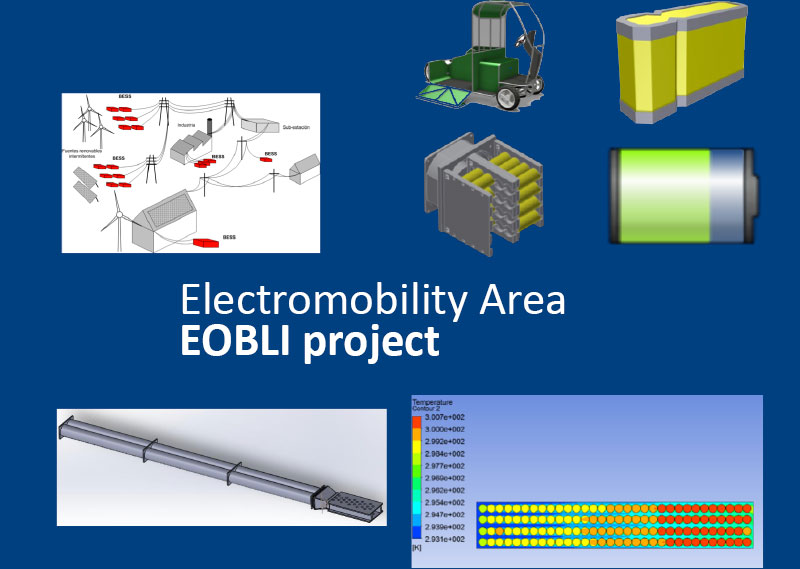
Project Description
The objective of the EOBLi project (Optimal Packaging of Lithium Ion Batteries) is to develop a computerized system to ease the design of battery banks. This is a complex problem, as design goals of ion-lithium battery banks compete among themselves and are hard to organize into a single mathematical expression. In order to solve the optimization problem, the EOBLi project uses advanced multi-objective modeling techniques which, aided by computer intelligence algorithms, allow to create optimal ion-lithium battery bank designs. Computer simulation software along with advanced thermal and useful life models are used in order to obtain the value of the functions.
Origin and Contributions
EOBLi started in 2012 thanks to a Line 1 fund given by CORFO, thus becoming one of four projects by Lithium Innovation Center. A year later, it obtained a three-year grant of a Line 2 fund by CORFO. The project is currently still underway.
Graduate EOBLi Dissertators
- Francisco Villa (Electrical Engineering)
- Sebastián Fuenzalida (Mechanical Engineering)
- Francisco Moser (Mechanical Engineering)
- Felipe Valdés (Mechanical Engineering)
WOS Publications (ex ISI)
- A fractal time thermal model for predicting the surface temperature of air-cooled cylindrical Li-ion cells based on experimental measurements (Journal of Power Sources 306, February 2016).
- Multi-objective optimal design of lithium-ion battery packs based on evolutionary algorithms (Journal of Power Sources 267, November 2014).
- Francisco Villa (Ingeniería Eléctrica)
- Sebastián Fuenzalida (Ingeniería Mecánica)
- Francisco Moser (Ingeniería Mecánica)
- Felipe Valdés (Ingeniería Mecánica)
- A fractal time thermal model for predicting the surface temperature of air-cooled cylindrical Li-ion cells based on experimental measurements (Journal of Power Sources 306, Febrero 2016).
- Multi-objective optimal design of lithium-ion battery packs based on evolutionary algorithms (Journal of Power Sources 267, Noviembre 2014).
